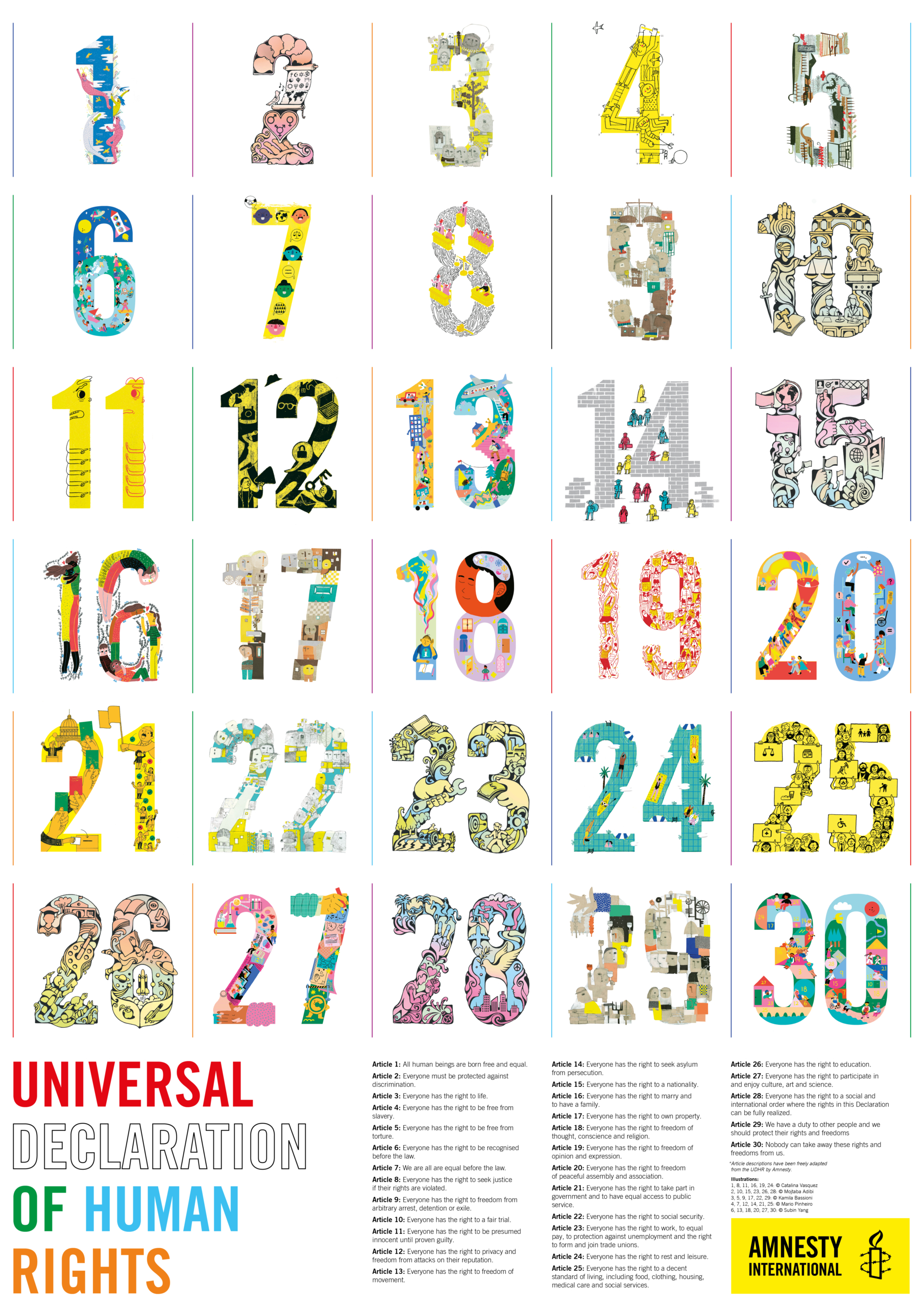

Now, therefore, The General Assembly proclaims This Universal Declaration of Human Rights as a common standard of achievement for all peoples and all nations, to the end that every individual and every organ of society, keeping this Declaration constantly in mind, shall strive by teaching and education to promote respect for these rights and freedoms and by progressive measures, national and international, to secure their universal and effective recognition and observance, both among the peoples of Member States themselves and among the peoples of territories under their jurisdiction.
All human rights are equally important, and all governments must treat human rights in a fair and equal manner, on the same footing and with the same emphasis. All states have a duty, regardless of their political, economic and cultural systems, to promote and protect all human rights for everyone without discrimination.
So no matter what distinctions people have, there is one basic principle that underlies all the rights outlined in the UDHR: that every human being has the same inalienable rights. This means human rights are the same for every man, woman and child across the world, no matter what their circumstances.
There can be no distinction of any kind: including race, colour, sex, sexual orientation or gender identity, language, religion, political or any other opinion, national or social origin, of fortune, of birth or any other situation. Universal means everyone, everywhere.
The UDHR also shows us that human rights are interdependent and indivisible. All of the 30 articles in the Declaration are equally important. Nobody can decide that some are more important than others. Taking away one right has a negative impact on all the other rights.